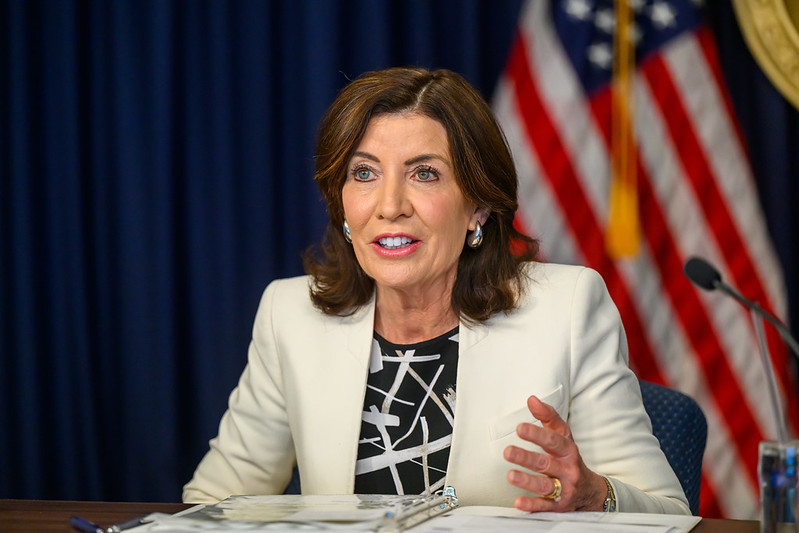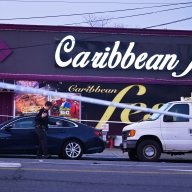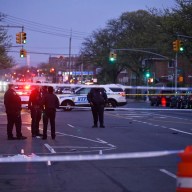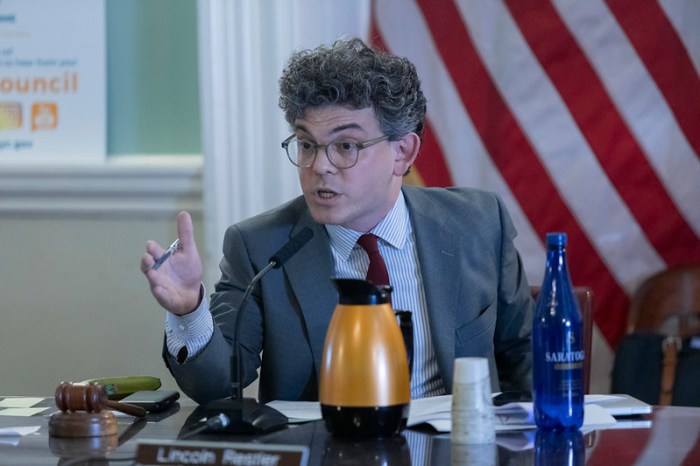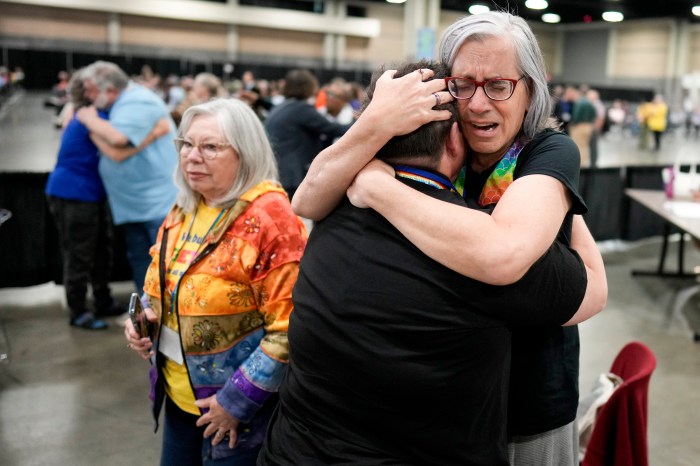Eye Potential Solution To Crisis
Sensible solutions are needed to resolve the unprecedented homeless crisis currently ongoing in New York City, local lawmakers and civic activists alike charged in testimony presented to an Assembly committee last week.
The Assembly Committees on Social Services and Oversight, Analysis and Investigation-the latter of which is chaired by Assemblyman Andrew Hevesi- held a hearing in Albany last Tuesday, Dec. 9, but accepted written remarks prior to the session from those who could not appear in person.
City Council Member Elizabeth Crowley was one lawmaker who submitted written testimony. In her remarks, she called upon state government to do something to stem New York City’s growing homeless population, now estimated at more than 58,000.
“The sharp increase in New York City’s homeless population is no accident,” Crowley wrote. “It began happening precisely after the state cut funding to the rental subsidy Advantage program, prompting the city to follow suit and close the program altogether. Programs like Advantage represented exactly the right approach to tackling homelessness.”
The legislator noted the program provided “up to two years of rent subsidies to help participants get back on their feet, as long as they worked at least 20 hours a week and covered 30 to 40 percent of their rent.”
With homelessness spiking over the last two years, Crowley noted, the city responded by opening more emergency housing shelters and planning for additional homeless shelters that could house hundreds of people in one location. She referred specifically to the controversial plan for a 125-family transitional shelter at 78-16 Cooper Ave. in Glendale, a long-defunct factory.
Crowley said the shelter- which the Department of Homeless Services (DHS) selected the nonprofit Samaritan Village to develop and operate- lies “in the heart of a very residential portion of my district, on land that myself and other community advocates have been working to transform into a school to relieve the record overcrowding in our school district.”
“Shelters like the $27 million Samaritan Village project proposed in my district, in a building that would take years to rehabilitate, does not meet the immediate need for our city’s homeless population and places an undue burden on our community,” she said.
Dawn Scala of the Glendale Middle Village Coalition echoed Crowley’s sentiments in written testimony she submitted on the coalition’s behalf. Scala charged that the city and DHS have “not effectively dealt with the growing homeless population,” and that constructing “more and more large-scale shelters does nothing to combat and end the homeless crisis, and is just [a] simplistic reactionary approach to a very real and growing problem.”
“It is a very expensive Band- Aid, and a poor one at that,” Scala wrote. “The current shelter system does nothing but to further perpetuate the crisis by warehousing homeless people in very expensive, large-scale facilities.”
The Glendale resident also charged that the DHS and shelter operators both require frequent audits to ensure proper management, as presently the entities are “accountable to no one.” This, she charged, contributed to squalid conditions, mismanagement and cronyism in the awarding of shelter contracts.
“Should audits uncover questionable practices, contract awards should be suspended until an investigation is completed,” Scala said. “An independent monitor should be appointed to oversee DHS until such time that marked improvements are made. In addition to combating the ineffectiveness of DHS, related city agencies need to coordinate to be more efficient and effective in serving the homeless and those at risk of being homeless.”
In a statement to the Times Newsweekly on Monday, Dec. 15, Hevesi said the hearing served to highlight “the severe and monumental realities of the homeless crisis.
“At the hearing, one particular advocate, who has worked in the field for decades, called the current situation ‘a disaster,'” Hevesi said. “Our next step will be to transform the worthy policy recommendations from the experts into an aggressive and comprehensive action plan. The homeless children and families in New York, who are at record numbers and growing, deserve every resource at our disposal in their time of crisis.”
Regarding the fate of the Glendale shelter proposal- which the Glendale Middle Village Coalition hopes to thwart through litigation-State Sen. Joseph Addabbo said on Tuesday, Dec. 16, he met the previous day, Dec. 15, with DHS Commissioner Gilbert Taylor and Deputy Mayor Lilliam Barrios regarding the proposal.
He expressed hope that “we can still find an alternative use for the warehouse on Cooper Avenue and avoid packing in such a large number of homeless families at that inappropriate site.”
The senator told the Times Newsweekly on Tuesday the issue will be further discussed with city officials sometime after the new year. Going forward, he stated, “we have to be persistent with the arguments on why it’s such a bad idea for the site to be used as a shelter.”
“I appreciate the efforts of DHS and city officials to hear our community’s concerns, and those of my fellow colleagues in government, as well as possibly considering discussions focusing on other future options for the property,” Addabbo said.









